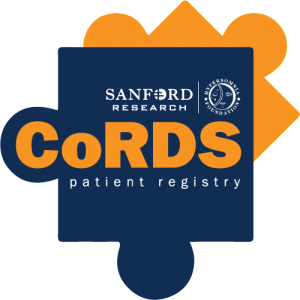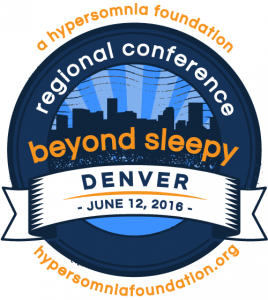SomnusNooze
Social Security Disability Series: Part 2
By Anjel Burgess, JD
For Part 1 in this series, click HERE. For Ms. Burgess’ presentation at our 2018 conference, click HERE.
Jennie has been fortunate enough to secure her short-term disability benefits. She has also hired an  Attorney to assist her with the Social Security Disability application process. Although her family encouraged her to “file on her own instead of paying out of pocket to hire an attorney,” Jennie has learned throughSomnusNooze that Social Security Disability attorneys are not paid by a retainer, as many attorneys are. Rather, they work on a contingency basis, which means that Jennie does not have to pay out of pocket to get representation. For the attorney to get paid, two conditions must be met:
Attorney to assist her with the Social Security Disability application process. Although her family encouraged her to “file on her own instead of paying out of pocket to hire an attorney,” Jennie has learned throughSomnusNooze that Social Security Disability attorneys are not paid by a retainer, as many attorneys are. Rather, they work on a contingency basis, which means that Jennie does not have to pay out of pocket to get representation. For the attorney to get paid, two conditions must be met:
- The attorney must win Jennie’s case.
- Jennie must be entitled to past-due benefits (also known as back pay).
If both conditions are met, the Social Security Administration (SSA) will pay Jennie’s attorney 25% of Jennie’s back pay, up to a maximum of $6,000. Since obtaining the benefits is of the utmost importance to Jennie, she has decided that she can’t afford NOT to have an attorney. She has hired an attorney who will file an initial application for her and represent her through each step of the process.
Jennie’s attorney has explained to her that most people who receive Social Security Disability benefits have been through a three-step process and that it may take two years or more before she is approved (note that in some states, it is a 2-step process, as the Reconsideration step is eliminated). These steps include the following.
- Initial – Roughly 30% to 35% of applicants are approved at this level. Once SSA receives the initial application, they
 request medical records from Jennie’s providers. Once the SSA receives Jennie’s medical records, SSA will have its own physician or psychologist (or both a physician and psychologist) review the medical records to give their opinion as to what limitations they believe that Jennie has, as well as the impact of those limitations on her ability to work. This would also include a review of the opinion of Dr. Wonderful and any other of Jennie’s treating physicians. Oftentimes, SSA will decide that they need an outside opinion in making their decision. If this occurs, the SSA may require that Jennie be examined by an independent physician or psychologist (at SSA’s expense) who may not have an expertise in idiopathic hypersomnia. This independent professional then prepares a report that summarizes her or his observations and professional opinion. If the case is denied initially, Jennie can appeal.
request medical records from Jennie’s providers. Once the SSA receives Jennie’s medical records, SSA will have its own physician or psychologist (or both a physician and psychologist) review the medical records to give their opinion as to what limitations they believe that Jennie has, as well as the impact of those limitations on her ability to work. This would also include a review of the opinion of Dr. Wonderful and any other of Jennie’s treating physicians. Oftentimes, SSA will decide that they need an outside opinion in making their decision. If this occurs, the SSA may require that Jennie be examined by an independent physician or psychologist (at SSA’s expense) who may not have an expertise in idiopathic hypersomnia. This independent professional then prepares a report that summarizes her or his observations and professional opinion. If the case is denied initially, Jennie can appeal. - Reconsideration – Roughly 7% to 10% of applicants are approved at this level. At the Reconsideration step, SSA obtains updated medical records and completes another internal review of Jennie’s file to see if any new evidence would result in a favorable outcome. It is possible that the SSA may send Jennie out for an independent examination at this stage as well. Again, if Jennie is denied, she can appeal.
- Hearing – Roughly 50% to 55% of the remaining applicants are approved at this level. This is the stage at which most people are awarded benefits, particularly after attending a hearing in front of an administrative law judge. The hearing is the opportunity for Jennie and her attorney to present the big picture to a judge. The big picture includes all medical records and testimony from Jennie herself. Jennie’s attorney will also have the opportunity to make oral and written arguments on Jennie’s behalf.
The common theme in each step of the process is medical records. Medical records are vital in a disability case because they can provide objective support for an individual’s complaints. For Jennie, her medical records tell the story of a very symptomatic individual who tried multiple medications but could only be productive for about 3 hours throughout the day. Her doctor ruled out many other conditions, and was able to confirm the diagnosis of idiopathic hypersomnia via a polysomnogram and Multiple Sleep Latency Test. Jennie’s medical records provide proof that she has idiopathic hypersomnia and authenticate her symptoms, which are reasonably due to idiopathic hypersomnia.
For Jennie, her medical records tell the story of a very symptomatic individual who tried multiple medications but could only be productive for about 3 hours throughout the day. Her doctor ruled out many other conditions, and was able to confirm the diagnosis of idiopathic hypersomnia via a polysomnogram and Multiple Sleep Latency Test. Jennie’s medical records provide proof that she has idiopathic hypersomnia and authenticate her symptoms, which are reasonably due to idiopathic hypersomnia.
If you, too, are ready to file for Social Security Disability or have been denied at any step in the process, contact a qualified Social Security Disability Attorney to assist you with the process.
Have you joined the registry yet?
 A patient registry is a collection that is established to collect standardized information about a group of patients who share a common condition or experience. In the case of the Hypersomnia Foundation Registry at CoRDS (Coordination of Rare Diseases at Sanford), the people who participate have one of the central disorders of hypersomnolence: idiopathic hypersomnia, Kleine-Levin syndrome, or narcolepsy (type 1 or 2). Becoming part of the registry is easy and it could help solve the puzzle of hypersomnia! Simply go to http://www.sanfordresearch.org/cords/ and click on the ENROLL NOW button.
A patient registry is a collection that is established to collect standardized information about a group of patients who share a common condition or experience. In the case of the Hypersomnia Foundation Registry at CoRDS (Coordination of Rare Diseases at Sanford), the people who participate have one of the central disorders of hypersomnolence: idiopathic hypersomnia, Kleine-Levin syndrome, or narcolepsy (type 1 or 2). Becoming part of the registry is easy and it could help solve the puzzle of hypersomnia! Simply go to http://www.sanfordresearch.org/cords/ and click on the ENROLL NOW button.
Watch Beyond Sleepy in the Mile-High City

